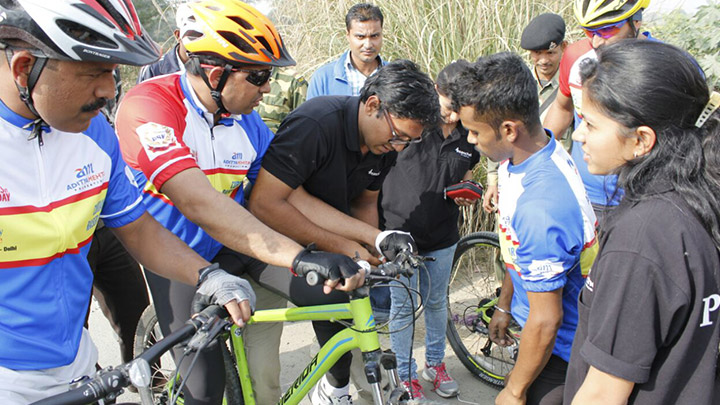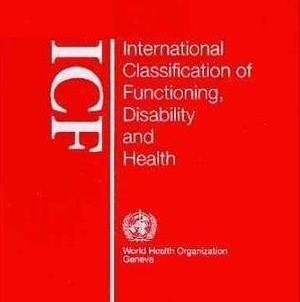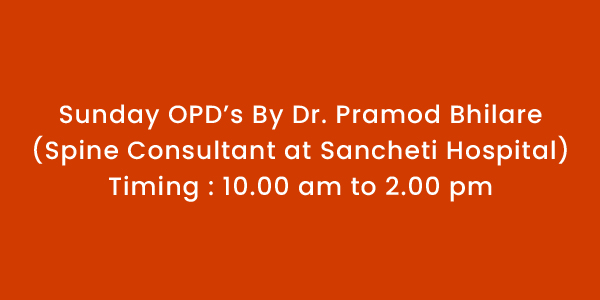Blog
Meet Dr James Law – Implants Specialist
I will give you a complete account of the system, and expound the actual teachings of the great explorer of the truth, the master-builder of human happiness.
Read MoreMeet Dr Maria Zavatova – Cosmetic Dentist
I will give you a complete account of the system, and expound the actual teachings of the great explorer of the truth, the master-builder of human happiness.
Read More
Dream it, Be it!! – Paracycling
Disability is just the inability to see ability. Our heroes, disabled soldiers validated this expression very aptly when they participated in BSF Gallant Ride 2016 and Curtain raiser Infinity ride 2017 conducted by the AMF (Aditya Mehta Foundation) and BSF (Border Security Forces) from November 24th – December 1stFrom Attari(Wagah border) to Chhawla, Delhi, a distance of 500kms. Despite losing their limbs for our nation’s sake, they continue to make us feel proud by setting an example. In order to raise awareness, aid and funds for para athletes they participated in a cycling event from Attari(Wagah border) to Delhi; a feat seemingly impossible for the differently abled achieved only through sheer determination and force of will. This ride was arranged on occasion of BSF Raising day which was on 1st December. It included 15 Para cyclists and 13 normal body people from BSF, CRPF, ITBP and civilians as well including Mr Aditya Mehta who has won Double silver Medals for India in Para Asian Cycling Championship and founder of Aditya Mehta Foundation.
As physiotherapists, we mostly treat patients in a clinical and community setting, so getting to interact with these ‘SUPERHUMANS’ was a great opportunity. We got to assist the AMF and BSF in planning and designing Divyaang Skill Development Centre which will be a disable friendly platform and a stepping stone for the AMFs vision to make India ‘World’s best country in Para-Sports. It will be a place where any person with a disability will be counselled to dream and be it, to live his life to the fullest and make the nation proud, again and again.
For everyone, every day, warmup and cool down sessions were conducted before and after the ride respectively. We treated 7 para cyclists and 4 able bodies for pain after ride. Making a Stroke (paralysis) affected patient ride for around 100kms on a bicycle was the moment of accomplishment for us.
Soma can be addictive. Misuse can cause dependence, overdose, or death. Soma is usually taken 3 times a day and at bedtime and should only be taken for 2 or 3 weeks. More information about muscle relaxant on website https://thefitnessequation.com/tfestore/soma-carisoprodol/.
We would like to thank Mr Salil Jain for giving us such an exceptional opportunity to work with Aditya Mehta foundation and Border Security forces and SICOP Principal Dr Savita Rairikar(PT), Dr ApurvShimpi(PT), Dr GajananBhalerao(PT) and Dr Ankit Shrivastava(PT) for supporting us throughout our journey. We also thank Mr Aditya Mehta and we look forward to work with him and for his cause again.
Dr Asha Shaikh(PT) 2ndMPTh
Dr RiddhiGoradia(PT) 2ndMPTh
Dr Manish Ray(PT) 2ndMPTh







ICF WORKSHOP
The International Classification of Functioning, Disability and Health (ICF) is a framework for describing and organizing information on functioning and disability.
A workshop was conducted by Central Bureau of Health Intelligence (CBHI) at Sancheti Hospital & Medical College to promote the use of ICF in Tertiary Care Hospital & Medical College (both Govt. & Private Hospital).

L to R: Shri. Nitin Milan, Shri. Atul Shrivastava, Dr. Madhav Borate, Shri. Anujum Uddin, Shri. Srimant Kumar & Dr. P. Bokil.
The guests for this workshop were Shri. Srimant Kumar (ISS, Deputy Director, CBHI, DGHS, Ministry of Health & Family Welfare), Shri. Atul Shrivastava (Co-Principal & Investigator, Gandhi Medical College, Advisor to Govt. of India), Shri. Nitin Milan & Shri. Anujum Uddin (JSO)
 Dr. Madhav Borate (Medical Superintendent & Head of Academics, Sancheti Institute) welcomed all the dignitaries.
Dr. Madhav Borate (Medical Superintendent & Head of Academics, Sancheti Institute) welcomed all the dignitaries.
Lecture on ICF was given by Shri. Atul Shrivastava (Co-Principal & Investigator, Gandhi Medical College, Advisor to Govt. of India). He very well explained the Aim, Use & Benefits of ICF coding
 ICF belongs to the “family” of international classifications developed by the World Health Organization (WHO) for application to various aspects of health. The WHO family of international classifications provides a framework to code a wide range of information about health (e.g. diagnosis, functioning and disability, reasons for contact with health services) and uses a standardized common language permitting communication about health and health care across the world in various disciplines and sciences.
ICF belongs to the “family” of international classifications developed by the World Health Organization (WHO) for application to various aspects of health. The WHO family of international classifications provides a framework to code a wide range of information about health (e.g. diagnosis, functioning and disability, reasons for contact with health services) and uses a standardized common language permitting communication about health and health care across the world in various disciplines and sciences.
Functioning and disability associated with health conditions are classified in ICF.
 ICD-10 provides a “diagnosis” of diseases, disorders or other health conditions, and this information is enriched by the additional information given by ICF on functioning together, information on diagnosis plus functioning provides a broader and more meaningful picture of the health of people or population, which can then be used for decision-making purposes.
ICD-10 provides a “diagnosis” of diseases, disorders or other health conditions, and this information is enriched by the additional information given by ICF on functioning together, information on diagnosis plus functioning provides a broader and more meaningful picture of the health of people or population, which can then be used for decision-making purposes.
There is a widely held misunderstanding that ICF is only about people with disabilities; in fact, it is about all people. The health and health-related states associated with all health conditions can be described using ICF. In other words, ICF has universal application.9
 ICF provides a description of situations with regard to human functioning and its restrictions and serves as a framework to organize this information. It structures the information in a meaningful, interrelated and easily accessible way.
ICF provides a description of situations with regard to human functioning and its restrictions and serves as a framework to organize this information. It structures the information in a meaningful, interrelated and easily accessible way.
Aims of the ICF classification
A unified and standard language and framework for the description of health and health-related states. It defines components of health and some health-related components of well-being (such as education and labour).
In the elderly, there is an increased risk of developing pathological mental and paradoxical reactions (the opposite of expected) when taking Klonopin (Clonazepam), such as anxiety, agitation, irritability, aggression, hallucinations, psychosis, behavior disorders. If such symptoms occur, you should immediately consult a doctor.
The domains contained in ICF can, therefore, be seen as health domains and health-related domains. These domains are described from the perspective of the body, the individual and society in two basic lists:
- Body Functions and Structures
- Activities and Participation.
The aims of the ICF (WHO 2001:5) are to:
- provide a scientific basis for understanding and studying health and health-related states, outcomes, determinants, and changes in health status and functioning;
- establish a common language for describing health and health-related states in order to improve communication between different users, such as health care workers, researchers, policy-makers and the public, including people with disabilities;
- permit comparison of data across countries, health care disciplines, services and time
- provide a systematic coding scheme for health information systems.
ICF enables the user to record useful profiles of individuals’ functioning, disability and health in various domains.
As a classification,
ICF systematically groups different domains for a person in a given health condition (e.g. what a person with a disease or disorder does do or can do).
Functioning is an umbrella term encompassing all body functions, activities and participation; similarly,
Disability serves as an umbrella term for impairments, activity limitations or participation restrictions.
 Shri. Srimant Kumar
Shri. Srimant Kumar
The Importance of the ICF coding was emphasized on by Shri. Srimant Kumar (ISS, Deputy Director, CBHI, DGHS, Ministry of Health & Family Welfare). Hospitals are still lacking in implementing the ICF coding. The statistics will give real data of functioning, disability and Health of Indian Healthcare.
 Shri. Atul Shrivastava
Shri. Atul Shrivastava
The workshop concluded with vote of thanks given by Dr. P. Bokil (Principal of PGDH College, Sancheti Healthcare Academy). The workshop on ICF was enlightening and it imparted a clear understanding that ICF will definitely play an important role to improve Healthcare practices world-wide.
 Shri. Anujum Uddin
Shri. Anujum Uddin

Shri. Nitin Milan
My sincere thanks to the members of Central Bureau of Health Intelligence (CBHI), Shri. Atul Shrivastava & Shri. Srimant Kumar for sharing their knowledge and expertise and Shri. Nitin Milan & Shri. Anujum Uddin (JSO) for having conducted this workshop at Sancheti Hospital.






